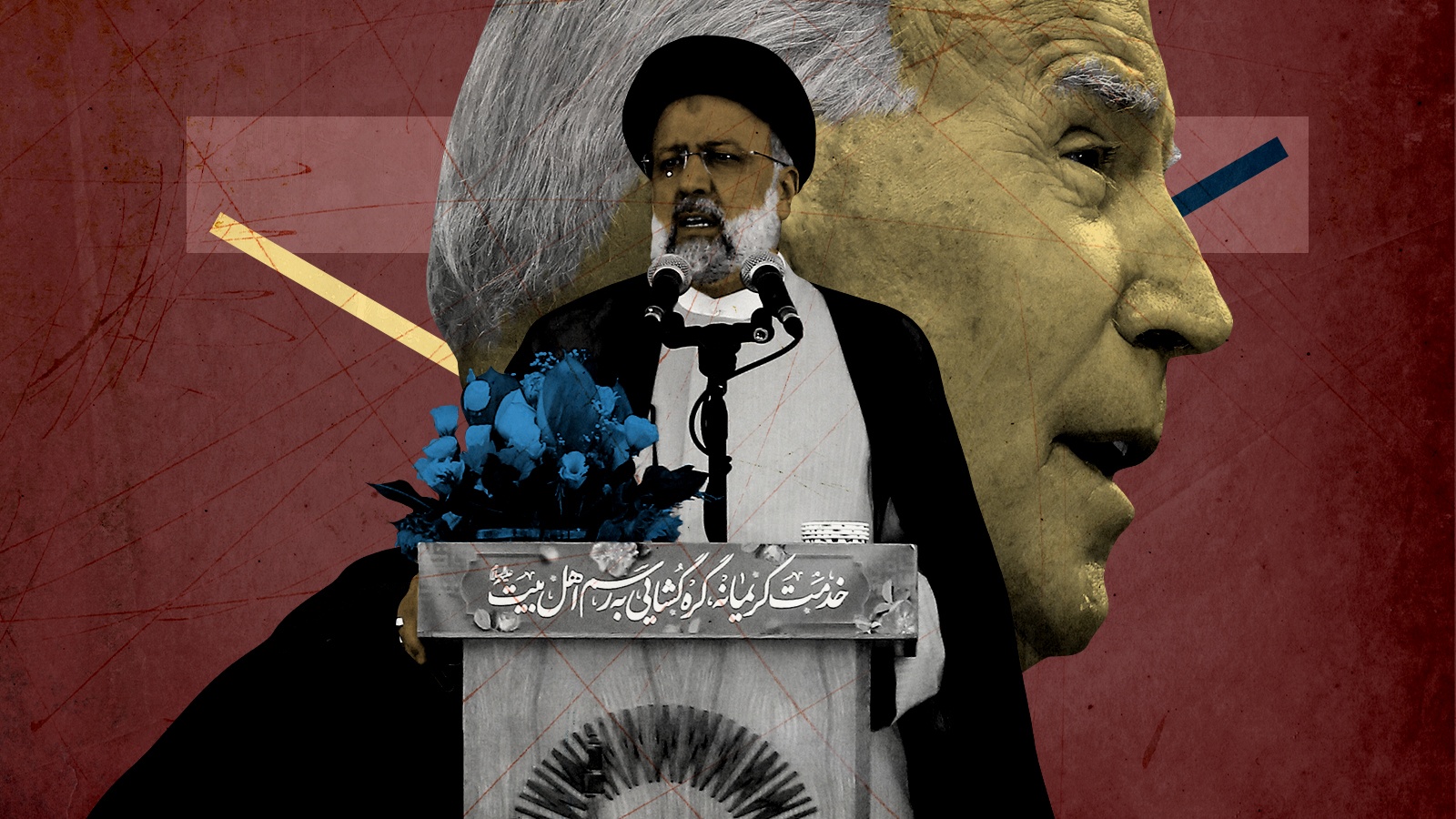Biden's Iran miscalculation


A free daily email with the biggest news stories of the day – and the best features from TheWeek.com
You are now subscribed
Your newsletter sign-up was successful
Iran officially has a president-elect, Ebrahim Raisi, who will be sworn in Thursday. Raisi replaces outgoing President Hassan Rouhani, a moderate first elected in 2013 to succeed Mahmoud Ahmedinejad, the hardliner who first came to many Americans' attention in 2007. That's when he spoke at Columbia University, expressing skepticism of the history of the Holocaust and insisting Iran doesn't "have homosexuals." On the scale of Rouhani to Ahmedinejad, Raisi is closer to the latter.
His distance from Rouhani is particularly important on the subject of the Joint Comprehensive Plan of Action (JCPOA), commonly known as the Iran nuclear deal. Rouhani presided over the deal's creation during the Obama administration and attempted to negotiate with the Trump and Biden administrations to restore U.S. participation in the pact after then-President Donald Trump withdrew in 2018. Raisi — who is personally sanctioned by Washington for his alleged involvement in the execution of thousands of political prisoners in the late 1980s — says he'll negotiate, too, but he's expected to be comparatively uncompromising.
None of this is news for President Biden and his team. Raisi was elected in June in a race generally thought to be designed for his victory. This administration knew Raisi was coming. So why did they wait? Why didn't they rejoin the Iran deal while Rouhani was the man on the other side of the table?
The Week
Escape your echo chamber. Get the facts behind the news, plus analysis from multiple perspectives.

Sign up for The Week's Free Newsletters
From our morning news briefing to a weekly Good News Newsletter, get the best of The Week delivered directly to your inbox.
From our morning news briefing to a weekly Good News Newsletter, get the best of The Week delivered directly to your inbox.
Restoring the JCPOA was a key Biden campaign promise, and the administration's foot-dragging has likely made it more difficult — perhaps even impossible — to fulfill. Immediately after Biden's inauguration, the Rouhani government proposed a simultaneous Iran-U.S. return to JCPOA compliance, a way for both governments to get a diplomatic win while saving face. Biden declined. Does he imagine Raisi will be equally accommodating?
There's one more way in which Biden's delay on this issue is unfortunate. I don't want to be simplistic here, but Iran's elections are much quicker than ours. The list of approved candidates was released in late May — months after Biden had rejected the simultaneous return plan. It'd be naïve to think U.S.-Iran relations were the only factor in Raisi's selection, but it would also be naïve to think they were irrelevant. If the moderate Rouhani had been able to restore the deal in February, would a hardliner like Raisi have been the favorite come May? We'll never be able to say with certainty, but we can be pretty sure diplomacy will be more difficult going forward.
A free daily email with the biggest news stories of the day – and the best features from TheWeek.com
Bonnie Kristian was a deputy editor and acting editor-in-chief of TheWeek.com. She is a columnist at Christianity Today and author of Untrustworthy: The Knowledge Crisis Breaking Our Brains, Polluting Our Politics, and Corrupting Christian Community (forthcoming 2022) and A Flexible Faith: Rethinking What It Means to Follow Jesus Today (2018). Her writing has also appeared at Time Magazine, CNN, USA Today, Newsweek, the Los Angeles Times, and The American Conservative, among other outlets.
-
 The ‘ravenous’ demand for Cornish minerals
The ‘ravenous’ demand for Cornish mineralsUnder the Radar Growing need for critical minerals to power tech has intensified ‘appetite’ for lithium, which could be a ‘huge boon’ for local economy
-
 Why are election experts taking Trump’s midterm threats seriously?
Why are election experts taking Trump’s midterm threats seriously?IN THE SPOTLIGHT As the president muses about polling place deployments and a centralized electoral system aimed at one-party control, lawmakers are taking this administration at its word
-
 ‘Restaurateurs have become millionaires’
‘Restaurateurs have become millionaires’Instant Opinion Opinion, comment and editorials of the day
-
 Big-time money squabbles: the conflict over California’s proposed billionaire tax
Big-time money squabbles: the conflict over California’s proposed billionaire taxTalking Points Californians worth more than $1.1 billion would pay a one-time 5% tax
-
 Did Alex Pretti’s killing open a GOP rift on guns?
Did Alex Pretti’s killing open a GOP rift on guns?Talking Points Second Amendment groups push back on the White House narrative
-
 Washington grapples with ICE’s growing footprint — and future
Washington grapples with ICE’s growing footprint — and futureTALKING POINTS The deadly provocations of federal officers in Minnesota have put ICE back in the national spotlight
-
 Trump’s Greenland ambitions push NATO to the edge
Trump’s Greenland ambitions push NATO to the edgeTalking Points The military alliance is facing its worst-ever crisis
-
 Why is Trump threatening defense firms?
Why is Trump threatening defense firms?Talking Points CEO pay and stock buybacks will be restricted
-
 The billionaires’ wealth tax: a catastrophe for California?
The billionaires’ wealth tax: a catastrophe for California?Talking Point Peter Thiel and Larry Page preparing to change state residency
-
 Trump considers giving Ukraine a security guarantee
Trump considers giving Ukraine a security guaranteeTalking Points Zelenskyy says it is a requirement for peace. Will Putin go along?
-
 Bari Weiss’ ‘60 Minutes’ scandal is about more than one report
Bari Weiss’ ‘60 Minutes’ scandal is about more than one reportIN THE SPOTLIGHT By blocking an approved segment on a controversial prison holding US deportees in El Salvador, the editor-in-chief of CBS News has become the main story
